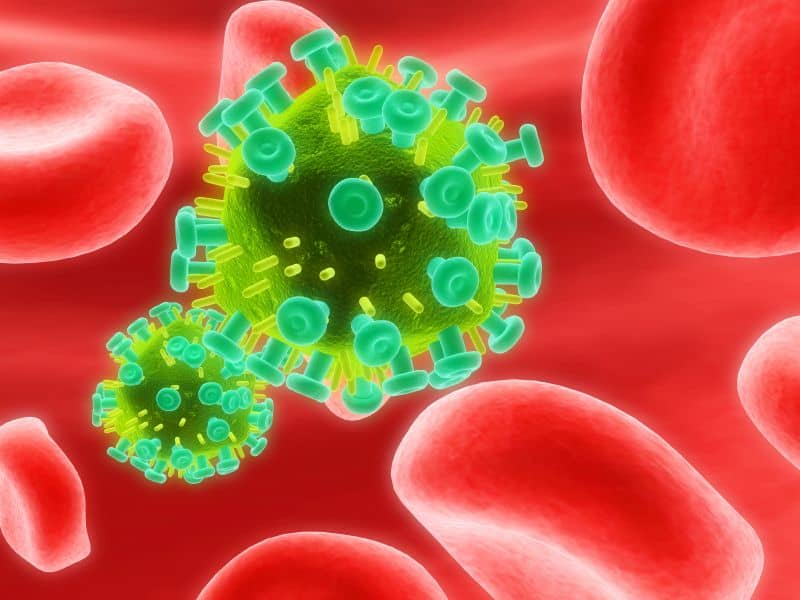THURSDAY, April 18, 2019 (HealthDay News) — Monotherapy with UB-421 antibody, which blocks the HIV virus-binding site on human CD4+ T-cells, maintains viral suppression for up to 16 weeks in HIV-infected persons undergoing analytic treatment interruption, according to a study published in the April 18 issue of the New England Journal of Medicine.
Chang-Yi Wang, Ph.D., from United Biomedical in Hauppauge, New York, and colleagues conducted a nonrandomized, open-label, phase 2 clinical study assessing the safety, pharmacokinetics, and antiviral activity of UB-421 monotherapy in HIV-infected persons undergoing analytic treatment interruption. At the screening visit, all participants had undetectable plasma viremia. After antiretroviral therapy (ART) discontinuation, they received eight intravenous infusions of UB-421 at 10 mg/kg body weight/week (cohort 1; 14 participants) or 25 mg/kg body weight every two weeks (cohort 2; 15 participants).
The researchers found that during analytic treatment interruption, administration of UB-421 maintained virologic suppression in all participants (94.5 percent of measurements at study visits 2 through 9) during analytic treatment interruption. Intermittent viral blips were observed in eight participants (28 percent). None of the participants had plasma viral rebound to more than 400 copies/mL. Throughout the study, CD4+ T-cell counts remained stable. Rash was a common and transient adverse event, which resulted in one participant discontinuing the study drug.
“Future studies are warranted to determine the longer-term safety and efficacy of UB-421 in HIV-infected persons,” the authors write.
Several authors disclosed financial ties to United Biomedical, United Biomedical Asia, and United BioPharma, all of which funded the study.
Abstract/Full Text (subscription or payment may be required)
Copyright © 2019 HealthDay. All rights reserved.



